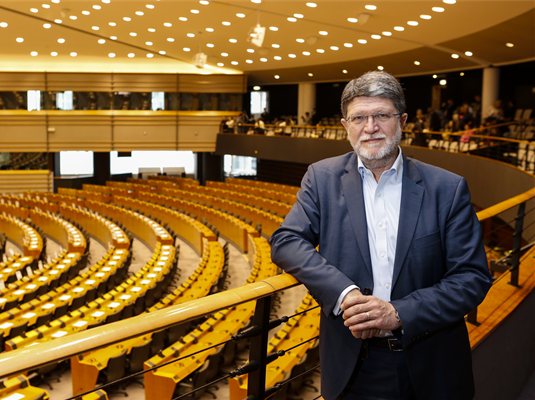As the former President of the European Parliament Delegation for relations with BiH and Kosovo, he also referred to the political situation in our country, especially considering the new function entrusted to him by the European Parliament.
You have recently appointed rapporteur of the European Parliament for recommendations to the Western Balkans ahead of the May 2020 summit in Zagreb. Can you tell us now what will your recommendations be based on?
I am extremely honored to have the new role of rapporteur for the Western Balkans recommendations ahead of the upcoming summit in Zagreb. With the experience I gained earlier as a rapporteur for the European Parliament for Bosnia and Herzegovina and Kosovo, I plan a lot of fieldwork. Specifically, over the coming months, I plan to hold meetings and discussions with representatives of key institutions and organizations that are part of the EU enlargement process, as well as with representatives of countries that are yet to acquire candidate status. The deadline is relatively short, but by April next year our recommendations should be on the agenda of the plenary session in the European Parliament. It will contain an honest and objective overview of the current progress, evolution and results of the current negotiating system methodology. But more importantly, we will also need to integrate into this document proposals that should give EU enlargement policy a new impetus in the third decade of the 21st century. Despite the recent "cold shower" for the Western Balkans from the EU, spurred by France (Macron), not only for the two countries listed, but also the rest of the Western Balkans, which have aspirations for EU membership, optimism is re slowly returning about making the mistake could correct in spring 2020.
Is optimism justified?
Enlargement policy is the most powerful foreign policy tool for expanding the EU's influence and stabilizing its neighborhood. This is recognized by large Union members, such as Germany and Italy, but also by smaller ones, such as Austria, who have been justly present in the region for decades, well before the last transition of the late 1980s. These are all countries that have invested heavily in political, economic and symbolic capital in enlargement, and French President Macron's internal calculations will not change their focus at all. After all, his statements did not invalidate any of the ongoing processes. In addition to the members I have mentioned, I believe that the new President of the European Commission, Ursula v.d., will also give her pains for the continuity of the enlargement policy. Leyen and High Representative for Foreign Affairs Josep Borrell, who already stressed in her inaugural speeches her importance to the European Union. Recently, the new Enlargement Commissioner Oliver Varhely stressed that he wants at least one Western Balkan country ready for membership by the end of his term, and I believe that in this regard, we can do more and better in the coming period to revitalize the enlargement process. It is important to emphasize that the existing bargaining model has been upgraded over the years, adapting to new circumstances, so I find it more compelling than points from Macron's non-paper. I would like to see the Zagreb Summit in May be a great opportunity for the EU to strengthen its guarantees for the Western Balkans and that a better atmosphere will be an additional boost to enlargement policy.
And the optimism is justified?
Enlargement policy is the most powerful foreign policy tool for expanding the EU's influence and stabilizing its neighborhood. This is recognized by large Union members, such as Germany and Italy, but also by smaller ones, such as Austria, who have been justly present in the region for decades, well before the last transition of the late 1980s. These are all countries that have invested heavily in political, economic and symbolic capital in enlargement, and French President Macron's internal calculations will not change their focus at all. After all, his statements did not invalidate any of the ongoing processes. In addition to the members I have mentioned, I believe that the new President of the European Commission, Ursula v.d., will also give her pains for the continuity of the enlargement policy. Leyen and High Representative for Foreign Affairs Josep Borrell, who already stressed in her inaugural speeches her importance to the European Union. Recently, the new Enlargement Commissioner Oliver Varhely stressed that he wants at least one Western Balkan country ready for membership by the end of his term, and I believe that in this regard, we can do more and better in the coming period to revitalize the enlargement process. It is important to emphasize that the existing bargaining model has been upgraded over the years, adapting to new circumstances, so I find it more compelling than points from Macron's non-paper. I would like Zagreb Summit in May to be a great opportunity for the EU to strengthen its guarantees for the Western Balkans and that a better atmosphere will be an additional boost to enlargement policy.
Read the whole interview on the link.


